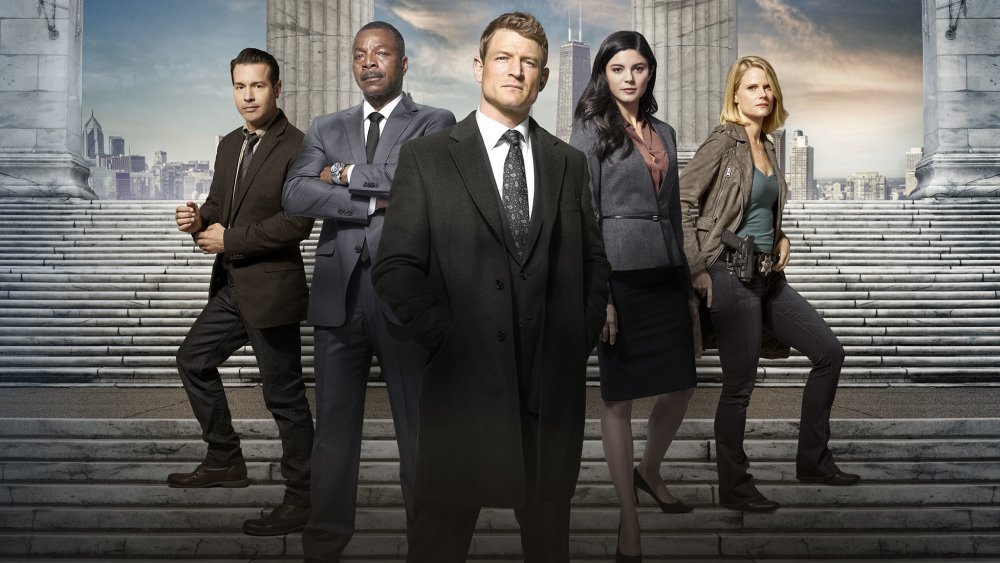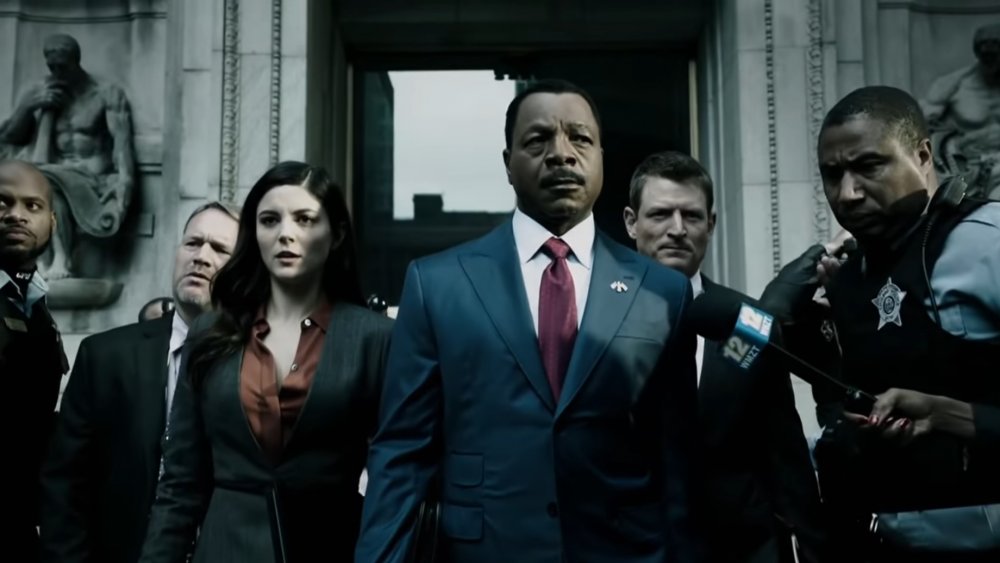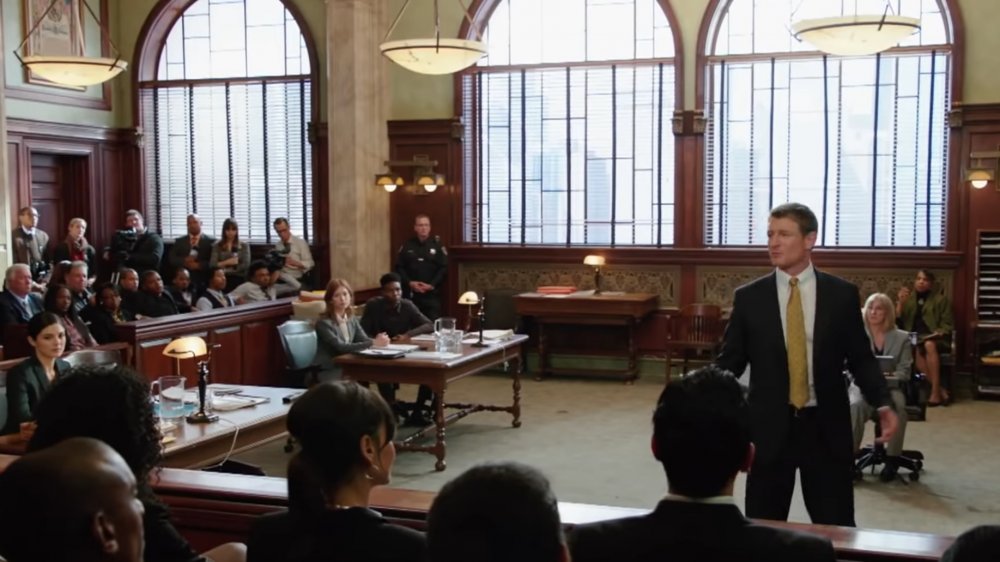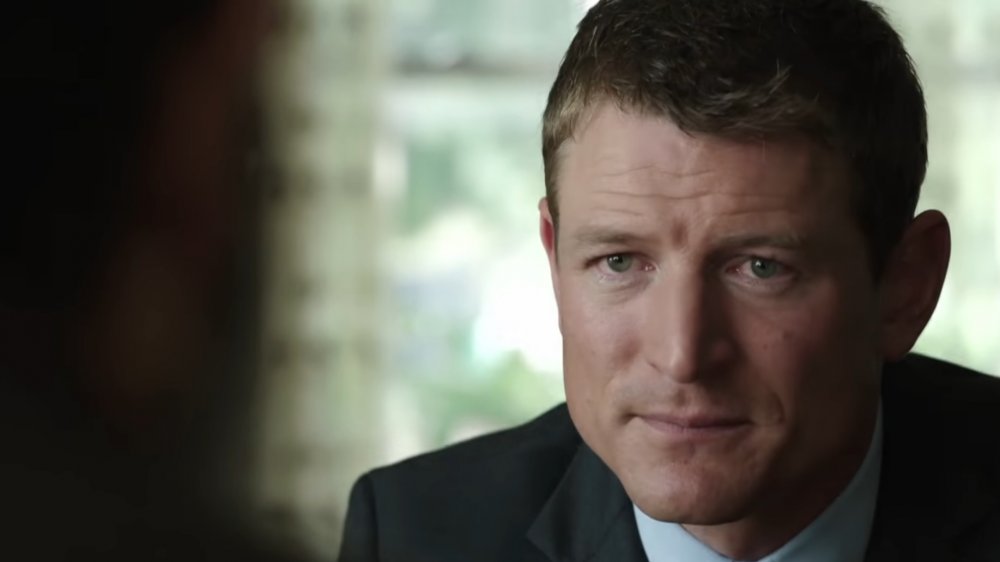The Real Reason Chicago Justice Was Canceled After One Season
After establishing itself with Chicago Fire and then following it up with the successful spinoffs Chicago P.D. and Chicago Med, Dick Wolf's One Chicago franchise appeared to be rivaling Law & Order for its ability to launch spinoffs. In 2016, NBC announced a fourth entry into the franchise. Chicago Justice would follow investigators and attorneys working at the State's Attorney office and, like the other shows before it, weave in characters from the other three series.
Chicago Justice padded its cast with TV veteran Carl Weathers, and with John Seda, who was previously a regular on its sister series, Chicago P.D. It also took a different approach from its action-driven counterparts, opting for a procedural format that was more methodical and recalled the heyday of Law & Order.
Despite its cast and premise, Chicago Justice became the first One Chicago series to get the axe when it was cut by NBC in 2017. It was pulled from the air after just one season, leaving fans wondering what the real reason could be that Chicago Justice was canceled.
Chicago Justice suffered because NBC thought it had too many One Chicago shows
When Chicago Justice's cancelation was announced, its fans were hungry for answers. When NBC Chairman Robert Blatt spoke to Deadline about why the show got pulled after just one season, they got an unfortunate truth: Chicago Justice's chances suffered because it was the fourth series in the franchise.
Blatt told the publication, "It just became somewhat of a real estate issue and just looking at how many of these Chicago shows we can sustain, we thought they are all good but it seemed like Justice was the most conventional, it was the closest to a Law & Order show, so we thought maybe this is the one we should sacrifice."
While he went on to clarify, "But it wasn't because the show wasn't good, it was really because a lot of other factors," that was likely cold comfort to fans who wanted the series to continue. It also raised the question of what other factors went into the show being on the chopping block in the first place.
Chicago Justice lagged behind other One Chicago shows in the ratings
The reason NBC greenlit a fourth series in the One Chicago franchise is that the first three shows produced consistent and solid ratings. While no single title reached the heights of breakout drama This Is Us, the franchise's mothership, Chicago Fire, was at one time the second-highest-rated show on the entire network (via Deadline).
While Chicago Justice wasn't a total ratings flop, it didn't perform as well as the other One Chicago shows. According to a report by Deadline, the series lagged almost a full point behind in the key 18-49 demographic when compared to Chicago Fire. It was also significantly less viewed than Chicago P.D. and Chicago Med.
Despite not performing as well as its sister shows, Chicago Justice did fare better in the ratings than several other shows that were picked up that year by NBC, according to Deadline. Series like Taken and the Jennifer Lopez vehicle Shades of Blue scored lower numbers, but were still given another shot by the network. It's likely that Blatt's comments about not being able to sustain another Chicago show on the crowded schedule was his indication that the network wanted to give newer properties a chance to grow, rather than sticking with an underperforming property from an already established franchise.
What was the fallout from Chicago Justice getting canceled?
The demise of Chicago Justice presented an interesting conundrum to the producers of the franchise: In a series of shows that frequently utilize the same characters and settings, what do you do when one of those shows gets canceled?
One of the big draws for the new series was the character of Detective Antonio Dawson (John Seda). Dawson was first introduced as a recurring character on Chicago Fire, before swapping over to help launch Chicago P.D. as one of the series regulars. When Chicago Justice premiered, he once again switched shows, joining the cast of the new venture. After Justice was canceled, Detective Dawson made the move back to Chicago P.D., which he rejoined as a series regular in season 5. In a statement to The Chicago Tribune, the actor called the return, "a little bittersweet."
Another lead on Chicago Justice was also able to escape the sinking ship. Assistant State's Attorney Peter Stone (Philip Winchester) was introduced as the lead for the new show, and while most of its other original characters died with the series, Stone found new life elsewhere. Even after the cancelation of Justice, Stone made an appearance on Chicago Med. He then became a series regular during seasons 19 and 20 of Law & Order: SVU. Carl Weathers, who played Stone's boss, State's Attorney Mark Jeffries, also guest-starred on one episode of SVU after the end of Chicago Justice.



